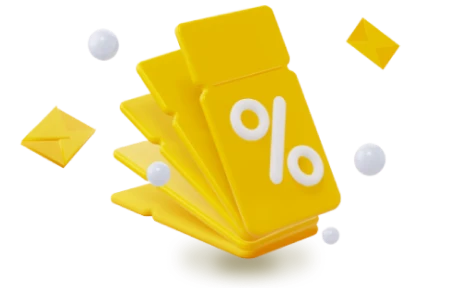Satellite Poker Tournaments
- What Are Satellite Tournaments?
- How Do Satellite Tournaments Work?
- Advantages and Disadvantages
- Types of Satellite Tournaments
- How to Qualify for a Satellite Tournament
- Tips and Strategies for Satellite Tournaments
- How to Find and Register for Online Satellite Tournaments
- Notable Satellite Tournaments
- What to Expect in a Satellite Tournament
- Tax Considerations for Canadians
- Conclusion
Many poker players dream of earning a seat at major tournaments, both live and online, where large prize pools are at stake, along with the chance to compete against top players. However, entry to these events often comes with high costs—for example, a seat at the WSOP (World Series of Poker) Main Event costs over $10,000. Fortunately, there’s a way to qualify for prestigious tournaments without paying the full entry fee. Through satellite tournaments, you can win a spot to compete with the best in the poker scene.
Keep reading to learn what satellites are, how to join them, and tips for getting the most out of your participation. This guide covers everything you need to know about poker satellites, plus expert tips to give you an edge.
What Are Satellite Tournaments?
Simply put, a satellite tournament is a qualifying event. Winners of satellites typically receive a ticket covering the buy-in for larger, more prestigious tournaments. These could include live events like the WSOP Main Event or the Norwegian Poker Championship, as well as online events such as the WSOP or EPT (European Poker Tour). With high buy-ins for these major tournaments, satellites provide a way for almost anyone to qualify, provided they secure a top position.
There are plenty of stories about players who used satellites to enter major poker tournaments. One of the most famous examples is Chris Moneymaker, who turned an $86 satellite entry into a seat at the WSOP Main Event in 2003, ultimately winning the tournament and taking home $2.5 million. While this is an extraordinary case, it shows the potential of satellite tournaments.
The concept of satellites dates back to the early days of the WSOP, first held in 1970. In 1983, the satellite format was introduced as a way to boost interest and attract more players. It was a massive success and led to a significant increase in poker’s popularity. Since then, satellites have become one of the most widely used tournament formats.
How Do Satellite Tournaments Work?
Satellite tournaments allow players to compete for a seat at a major poker event for a relatively small investment. For instance, the WSOP runs over 80 tournaments each year, many of which have satellites leading up to them. Casinos typically promote these qualifying events on their tournament pages.
Most satellite tournaments require a buy-in to participate. The cost can range from just a few dollars to hundreds, depending on the prize at stake. For example, a satellite for a WSOP event with a $10,000+ buy-in will naturally have a higher entry fee than a local casino tournament.
In most cases, the prize in a satellite is a ticket covering the buy-in for the target tournament. The buy-in fees collected from satellite participants often go toward covering the casino’s costs for offering free seats. Sometimes, additional prizes may be included, with the pool of collected buy-ins being distributed among qualifying players.
The number of winners in a satellite varies significantly. In some cases, only the top player secures a spot, while in others, multiple seats are awarded. One thing you’ll notice about satellites is the large number of participants. While this increases the number of available prizes, it also means tougher competition for the qualifying spots.
Satellite tournaments come in various formats. These differences include the number of winners, specific requirements to qualify, and the game variants played. While Texas Hold’em is the most common, other formats like Omaha or Seven Card Stud may also be used. Generally, the game format of the satellite aligns with the game played in the target tournament.
Advantages and Disadvantages
Every tournament you play will have its own advantages and drawbacks. Here’s what you need to know about satellite tournaments:
-
Pros
- Offers a chance to qualify for tournaments with high buy-ins.
- Gives you an opportunity to compete against top poker players.
- A small investment for the potential to win large prizes in higher-stakes events.
- Different types of satellites make it easier to find tournaments with players at your skill level.
-
Cons
- Large number of participants makes qualifying competitive.
- Attracts many experienced players.
- Limited cash prizes beyond buy-ins to the main event.
Types of Satellite Tournaments
There are several types of satellite tournaments to choose from. Let’s explore some of the most common formats:
Single-Table Satellites
- Small-scale tournaments with no more than 10 players at the table.
- Typically, one winner takes a buy-in worth about 10 times the entry fee.
Multi-Table Satellites
- Larger tournaments with potentially hundreds of players competing simultaneously.
- Winners from initial tables advance to a final table, where the qualifying players are decided.
Steps Satellites
- Similar to multi-table satellites but with a key difference: players are matched against others at the same skill level.
- Players progress through levels, either winning at each stage or advancing to a final table with a set number of winners.
Super Satellites
- A variation of multi-table satellites where players can buy additional chips during the game.
- These tournaments often include both buy-in tickets and an additional prize pool, making them appealing to many poker players.
How to Qualify for a Satellite Tournament
Anyone can join a satellite as long as there are available spots. By securing a winning position, you’ll automatically qualify for the main event. Here are some common ways to enter:
Online Qualifiers
- Satellites played online, with the main event being either online or in-person.
Live Qualifiers
- Satellites held at physical poker tables, almost always leading to in-person events. These are often scheduled shortly before the main tournament begins.
Direct Buy-In
- If you don’t qualify through satellites, you can still pay the main event’s buy-in fee directly. This option is often costly, making satellites the more affordable route.
Tips and Strategies for Satellite Tournaments
Tournament play feels different from cash games, with higher stakes often creating stressful situations. Here are some tips to help you succeed in satellite tournaments:
Tip 1: Choose the Right Satellites
- Don’t jump into the first satellite you see. Look for events with more prize spots, which allow for tighter play as you aim for a qualifying position.
- For satellites with fewer spots, you’ll need to play more aggressively to secure your place.
- If possible, assess the skill level of your opponents. High-stakes satellites, such as those for WSOP seats, typically attract more skilled players. Beginners may benefit from starting with lower-stakes tournaments or steps satellites.
Tip 2: Consider the Main Event
- Ensure you’re playing to qualify for a tournament you intend to attend. Missing the event due to scheduling conflicts can be frustrating, especially if travel and accommodations are included.
Tip 3: Be Well-Prepared
- It’s normal to feel pressure during tournaments, but preparation can help. Arrive early, even for online games, to familiarize yourself with the blinds and relax before the action begins. Starting in a calm state can improve your focus and decision-making.
Tip 4: Start With a Reliable Strategy
Tournament play differs from cash games, and many players struggle to adapt. Make sure you’re not one of them. At the start of most tournaments, the field often includes less experienced players who may lose their chips quickly. Your strategy in the early stages should focus on playing tight. Avoid getting drawn into unnecessary hands and save your chips for strong opportunities. Depending on the number of qualifying spots and participants, you may need to make early adjustments, but your priority should be to preserve enough chips to secure a qualifying position.
As the game progresses and weaker players are eliminated, it’s time to reconsider your approach. If you’re low on chips, you’ll need to take a more aggressive stance—it’s often a “take it or leave it” phase. However, if you have a healthy chip stack, avoid folding too frequently, as this could leave you vulnerable later. Entering the bubble with minimal chips is rarely ideal.
At the bubble stage, you’ll be close to securing your tournament ticket. Avoid risky plays that could knock you out right before the finish line. Your strategy will depend on your chip position:
- If you have enough chips, play conservatively and only risk strong hands. Remember, your goal is to qualify, not to eliminate others.
- If you have a medium stack and other players at the table are short-stacked, consider playing aggressively to force them out and collect blinds.
- If you’re short-stacked, you’ll need to go “all-in” when a suitable opportunity arises since you have little to lose in this position.
Tip 5: Manage Your Money Wisely
Managing your budget is essential for any poker game. Decide how much you’re willing to spend before you start and stick to it. Never exceed this amount, even if you lose. Poker involves an element of chance, so be prepared for potential losses. Financial discipline is one of the key factors for long-term success.
Money management isn’t just about setting a limit for your poker account. It also involves handling your funds effectively. For example:
- Avoid making bets that exceed your skill level. Many tables accept high stakes, but they may not be suitable for your experience at the moment.
- Develop discipline in managing your chips during games. Your aim should always be to last as long as possible at the table.
If you’re performing well, you can afford to take some calculated risks to increase your chips. However, if you’re losing, it’s rarely a good idea to continue without adjusting your playstyle and spending. Instead of risking all your funds at one table, consider playing at tables with lower buy-ins to make your money last longer.
Tip 6: Simulate Pressure Scenarios
If possible, practise short-stack and bubble play in low-stakes games or with poker training software. Many players crumble under the pressure of bubble play in satellites, so building familiarity beforehand is a major advantage.
How to Find and Register for Online Satellite Tournaments
Now that you know the types of satellites available and strategies to use, it’s time to find a tournament to join. Here’s how:
Start by reading reviews of online poker sites.
Check if the online casinos offer bonuses that can cover your first tournament buy-in or more.
After registering and making your first deposit, head to the tournaments section and browse the available satellites.
If you’re new to tournament play, avoid satellites for major events right away. Begin with smaller tournaments and gradually increase your ambitions as you improve.
Review all the details of the satellite you want to enter, including the buy-in amount, number of qualifying spots, and the schedule.
Notable Satellite Tournaments
If you’re aiming to try some of the most recognized and prestigious satellite tournaments, here are a few to keep in mind:
- WSOP (World Series of Poker): Hosting over 80 events annually, most of which offer satellite tournaments to secure free seats. Even the Main Event, held every summer in Las Vegas with a buy-in exceeding $10,000, has dedicated satellites.
- WPT (World Poker Tour): Often considered the “younger sibling” of the WSOP, WPT runs numerous events worldwide throughout the year. Many of these are played online, with satellites leading up to them. With millions in top prizes, these tournaments are highly prestigious.
- EPT (European Poker Tour): This is Europe’s answer to the WSOP, featuring tournaments in cities like Monaco and Barcelona throughout the year, as well as online events. Many of these have online satellites offering buy-in prizes.
Satellite Tournaments for Canadian Players
Canadian players can join a variety of online satellites through licensed operators regulated in Ontario by iGaming Ontario, as well as reputable offshore poker sites that accept Canadian players. If you win a seat to an event outside the country, plan your travel early — for example, the WSOP in Las Vegas requires a valid passport, and you should confirm entry requirements before booking flights and accommodation.
Some Canadian live poker rooms also host satellites for major tournaments. Well-known venues include the Playground Poker Club in Kahnawake, Casino Montreal in Quebec, and River Rock Casino in British Columbia. These venues regularly run qualifiers for regional and international events.
What to Expect in a Satellite Tournament
As mentioned earlier, satellite tournaments differ from cash games. Although the buy-ins and potential rewards are similar, tournaments demand players to perform under pressure and adapt to the competitive dynamics.
Every participant enters a satellite tournament with the same goal: to win a seat in the main event. However, only a select few will succeed. While luck plays a part, the finer details and strategies often make a difference.
The early stages of satellites are often chaotic, with some players adopting overly aggressive strategies to gather chips quickly. This is a common mistake among newcomers, and staying tight during this phase can help you outlast reckless players.
As the game progresses and approaches critical phases, players often succumb to stress and nerves. Following the strategies outlined in this guide can help you stay composed and avoid costly errors. Those who make it to the end typically have a more calculated approach, preparing them better for the main event.
Tax Considerations for Canadians
Conclusion
This guide has provided a thorough overview of poker satellites, including their advantages, disadvantages, and variations. You’ve also learned how to qualify and picked up strategies to improve your chances of success.
With this knowledge, you’ll be better prepared to tackle this tournament format, which is one of the most competitive in poker. Succeeding in satellites opens the door to participating in some of the largest, most rewarding poker tournaments available. Good luck!

















